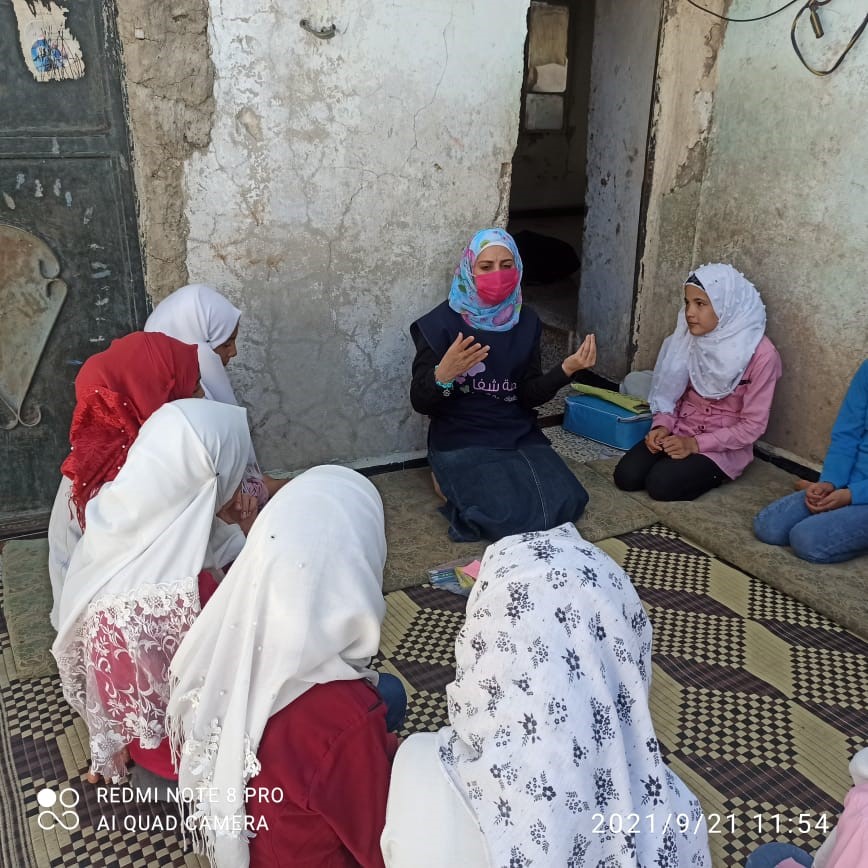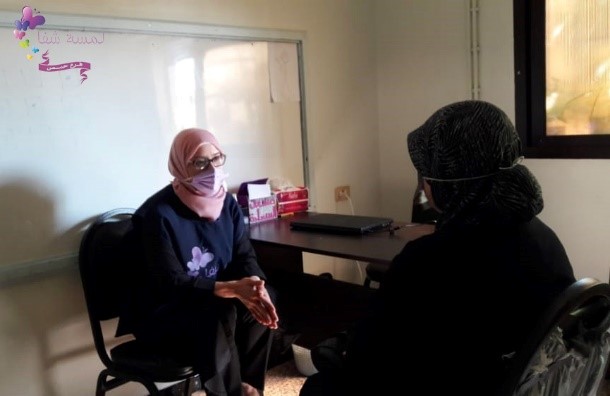People in Syria benefit from WHO facilitated psychosocial support
Abd
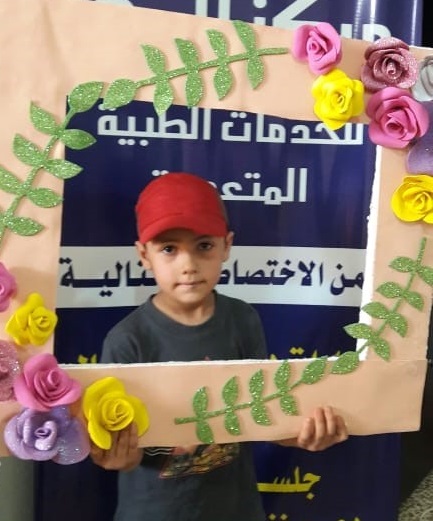
Abd, 7, lives in Dar Kabira, Syria and suffers from nocturnal enuresis. His mother took him to the paediatric clinic at the community centre where, upon examination, the physician found no physiological cause for the condition and referred the child to the psycho-social support team.
Abd attended WHO-supported individual sessions together with his mother. He was engaged in a psychosocial programme while his mother was given guidance on ways in which she can help her son. Abd’s conditions gradually improved. Abd celebrates his small victories as he has finally overcome his medical condition and feels extremely proud.
Rawaa Najia
Rawaa Najia, 14, lives in Grandad village in Syria. She has been attending psychosocial support sessions held by WHO team during regular visits to the village. Rawaa used to shy away when upset and have difficulty expressing her feelings and communicating with her mother and peers in groups.
After attending sessions focused on self-expression, Rawaa has strengthened her skills in verbal communication and finds herself able to deal with her emotions. This in turn has positively impacted her relationship with her mother and time spent with friends and neighbours.
Hamida
Hamida, 51, lives in Aldar Alkabira, Syria. While she was recovering from COVID-19, she felt completely isolated as her extended family and friends stopped calling her stigmatizing her current condition. Hamida was distressed and afraid that she can pose a danger for her family.
Hamida called the local psychosocial support centre supported by WHO and shared her feelings. Through the phone, the psychotherapist raised her awareness about the COVID-19 virus and what healthy practices she could exercise to avoid the stress. After recovery, Hamida continued visiting the centre and being engaged in individual sessions. Now she feels stronger physically and mentally. “It was very helpful having someone to talk to and confide in at the difficult time, especially, when feeling guilt and fear,” says Hamida.
Health educators in Syria strengthen skills to promote health in schools
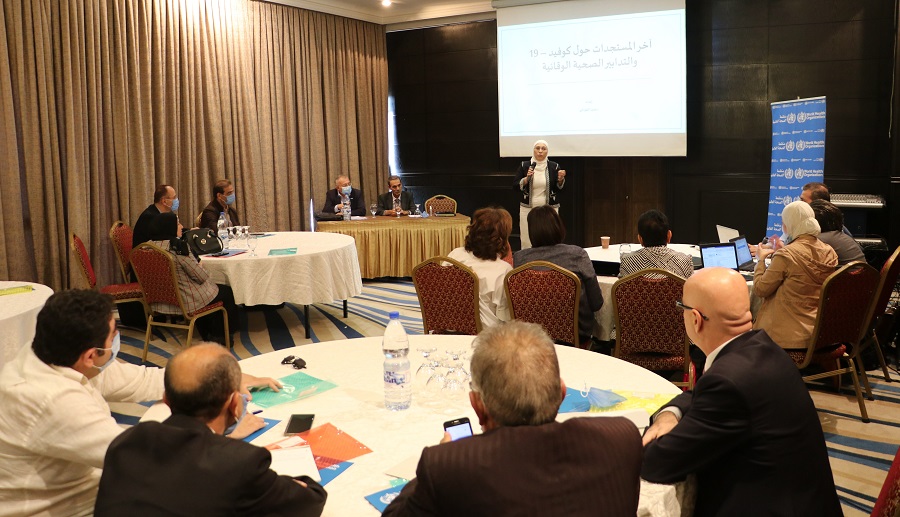
2 November 2021, Damascus – The latest data from Syria depict that people hospitalized with severe forms of COVID-19 and those who died from its consequences were unvaccinated. It is not surprising, as currently, only 6.2% of the population have received vaccination. If the vaccines in the projected pipeline will be delivered in the coming months, only 16% of the total population could be fully vaccinated by the end of 2021.
Tackling vaccine hesitancy and increasing vaccine uptake by schoolteachers and administration, as well as helping children to adhere to preventive measures and promote healthy lifestyle has been on agenda of a WHO-supported workshop for Syrian health educators last week.
“In some areas of the governorate where I come from, we witness the refusal to receive the COVID-19 vaccine due to the spread of rumours and misinformation. The workshop brought together health educators to discuss the common issues we face with regards to vaccination and preventive measures in schools. Now, I feel more knowledgeable on how to address these rumours and how to promote healthy behaviour among teachers and children more effectively,” said Dr Elias Zahlouq, Head of School Health Department in Idlib and Health Supervisor of School Health in Hama.

Speakers and experts from WHO and the Syrian Ministry of Education shared the latest developments in COVID-19 vaccination and preventive measures, mental health, healthy nutrition, tobacco prevention, personal hygiene. Participants – heads of health departments and health education officials – from all Syrian governorates were involved in interactive discussions and will further train local school health educators on how to effectively promote healthy lifestyles using WHO information resources to children and teachers.
Dr Hatoun Al-Tawashi, Director of School Health Department, said, “Health education has a vital role in preventing the spread of COVID-19 pandemic. We need to continue raising health awareness among students and promote healthy lifestyles to prevent the spread of COVID-19.”
Following the workshop, the Ministry of Education plans to launch a country-wide awareness raising campaign on COVID-19 vaccination among teachers and promoting healthy practices in schools.
Batoul’s journey to recovery: WHO providing quality mental health services to people in need
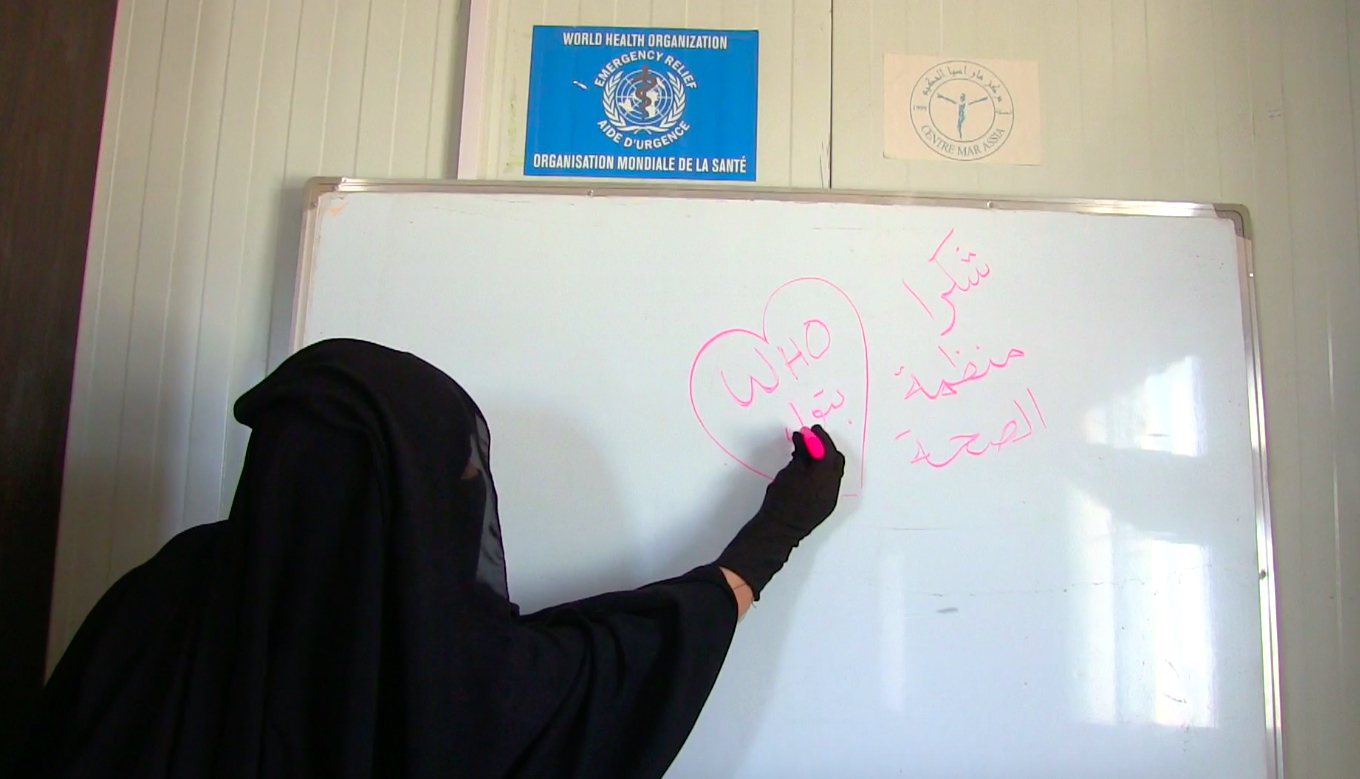
10 October 2021, Damascus – Prior to being displaced to Al Hol camp in north-east Syria, Batoul, 28, used to live in Al Bab city in rural Aleppo. She knows very well how the sudden loss of home and loved ones can affect mental health and well-being.
“I was around 27 when I developed a severe psychological condition. I could hear a lot of powerful voices inside my head, and I would have many suspicious thoughts. I suffered as I started mistrusting everyone and lived in constant fear. I went downhill very fast. It became extremely difficult to get control of my life, and I remember acting strangely, scaring people around me. I began hearing voices giving me commands and live with that even until today. To control the symptoms, I became addicted to self-harm,” said Batoul, describing her suffering.
Batoul is one of the thousands of internally displaced persons at Al Hol camp feeling anxious and uncertain about the future and constantly anxious. This state of mind has become “normal” for camp residents like Batoul.
With WHO support and in close coordination with health partners and camp management, Batoul was referred to a psychiatrist who diagnosed her with schizophrenia and offered an individually tailored treatment plan that did not compromise her confidentiality or dignity. For over 9 months she was counselled by a WHO-supported community worker who looked after Batoul and helped her work towards recovery by ensuring she took timely medication, attended individual counselling sessions, participated in social skills development training, and was regularly followed up.
“Every day I struggled to get through the day. The treatment along with care from the medical team was very helpful, and my recovery and my life have changed for the better. Without this care and support, I would not have been here today living a normal life. I received help to survive when I was grappling with my mental health issues, and I am very thankful to my doctor and the whole team,” added Batoul.
This year only, WHO supported around 50 000 consultations across Syria through community-based projects and over 65 000 consultations through primary health centres, helping people in urban, rural and hard-to-reach areas with mental and physiological challenges. Since the onset of COVID-19, WHO and partners have reached over 333 000 children, elderly people, and caregivers through mental health campaigns in the governorates of Aleppo, Homs, Hama, Lattakia, Tartous, Deir-Ez-Zor and Rural Damascus, providing skills on how to cope with stress and fears, and combat stigma associated with COVID-19.
This year to date, WHO has delivered over 323 000 treatment courses as part of therapeutic interventions of mental health conditions, through health partners across the country, including in northeast Syria. The current coverage for the management of mental health conditions and psychosocial support services at functioning primary health care centres across Syria is 40% – one of the highest in the Eastern Mediterranean Region.
“The health and mental well-being of people in Syria, already troubled by years of war, has been worsened by the impact of COVID-19 and the country’s current economic situation. Addressing mental health and providing psychosocial support is an integral part of the World Health Organization’s work to protect those people in need. We work with our partners to ensure that the humanitarian health response is holistic, and mental health and psychological support is integrated,” said Dr Akjemal Magtymova, Head of Mission and WHO Representative in Syria.
World Patient Safety Day in Syria
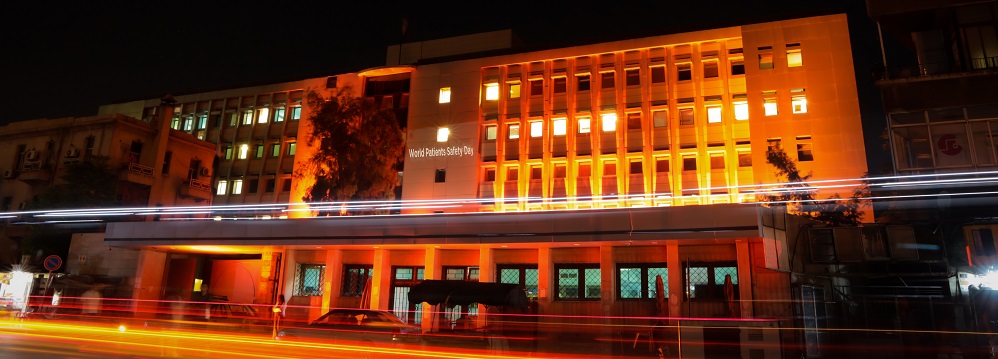
22 September 2021 – On World Patient Safety Day on 17 September WHO Syria partnered with the Ministry of Higher Education to Syria in lighting up the Damascus Maternal and Pediatrics hospitals in orange. Orange is landmark signature of the global campaign on the occasion of World Patient Safety Day which this year focused on safe maternal and newborn care.


